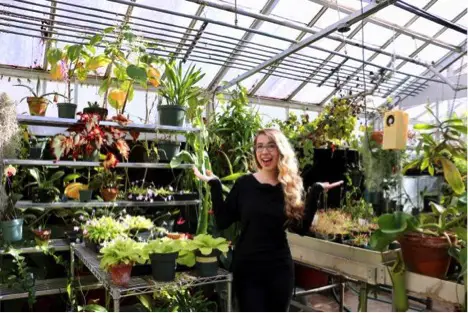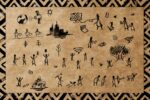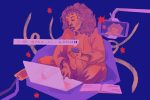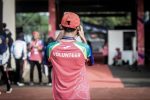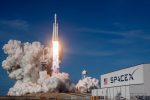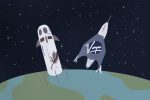Today, students live in a world where they are eager for knowledge and strive to get hands-on experience through a variety of jobs and internships. These critical opportunities allow students to put their foot in the door and set the foundation for their career and further explore their interests.
Niki Padgett, a senior at the University of Georgia, landed an amazing internship opportunity that she just couldn’t pass up. Over the course of this semester, Padgett has been interning at the John F. Kennedy Space Center in Brevard County, Florida.
I had the opportunity to get to learn about Padgett’s unique experience and ask her a couple questions about what she’s doing at the Space Center.
Sarah Hoenig: Were you always interested in biology? What sparked your interest to go into that particular field?
Niki Padgett: My interest in astrobiology sparked when I was around five years old flipping through my dad’s astronomy magazines. I’ve always been very curious and had a passion for discovering new things, so I knew I wanted to be a research scientist.
SH: I’ve heard the internship program at NASA is extremely competitive. What was the application and interview process like?
NP: It’s a competitive internship program! Everything that makes you qualified and unique for your position needs to be included in your application. The interviews are incredibly stress-free, they are built to be more of a conversation to explore who you are personality and passion-wise, as you are qualified enough on paper to get the interview.
SH: What kind of research are you doing at the Space Center?
NP: Right now, I’m working in the Space Biology department. I work closely with the Advanced Plant Habitat and Veggie systems, and I also help with food production as well as food safety for the astronauts. I also perform microbiological analysis on both the seeds and the plants.
SH: How is this research geared towards aiding astronauts in space?
NP: My research allows us to inspect the safety of plants, which looks closely at bacterial and fungal growth. The goal is for astronauts to be able to use this research on future missions outside of Earth’s orbit.
SH: Did prior internship, job or research opportunities better qualify you for this internship?
NP: Yes! At my university, the University of Georgia, I work under two postdoctoral students in the Plant Evolutionary Genetics and Genomics Lab. My research focuses on abiotic stress resistance in sunflowers, genetic variation in crop evolution, the evolution of the genomic structure in wild versus cultivated sunflowers, and plenty of data collection.
SH: What life skills and knowledge do you hope to gain from your experience at NASA?
NP: I’ve gained many valuable skills during my internship so far. It’s wonderful to work with professionals who have 20 or more years of experience in their fields and are more than willing to take the time to share their knowledge they’ve gained from their own experiences. I’ve made many valuable connections here that I know will last a lifetime.
SH: Many students seek internships during their undergraduate careers to form those same skills and relationships you just talked about. What advice would you give to someone who is interested in pursuing a rigorous internship like this?
NP: I’d tell them to apply. Don’t underestimate yourself. If you have high goals and dreams that you want to make happen, go for it.
SH: Aside from your research, what do you do for fun and are you involved in any organization on your college campus?
NP: Right now, I’m the vice president of Women in Science, an organization on my campus. Some of the work that the position includes are mentoring science undergraduate students and promoting scientific organizations to the undergraduate and Athens community. I also plan and execute events for undergraduates, host their meetings and proctor scientific meetings.
I contact many professors, advisors, coordinators and PhD students to organize panels. As vice president, I’ve had the opportunity to attend a variety of interesting conferences that have broadened my knowledge and awareness. Another one of my duties includes promoting different events through social media and designing promotional items and clothing.
SH: It sounds like you have had an extremely busy semester. Have you had time to think about your plans for after you graduate?
NP: I currently plan to work on earning my master’s in microbiology or molecular genetics and then hopefully continue my career with NASA.


